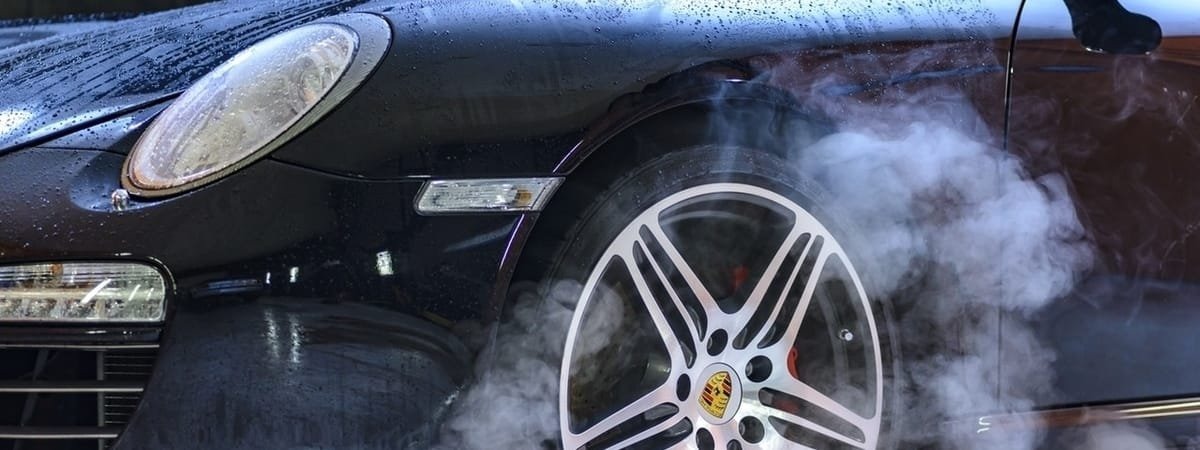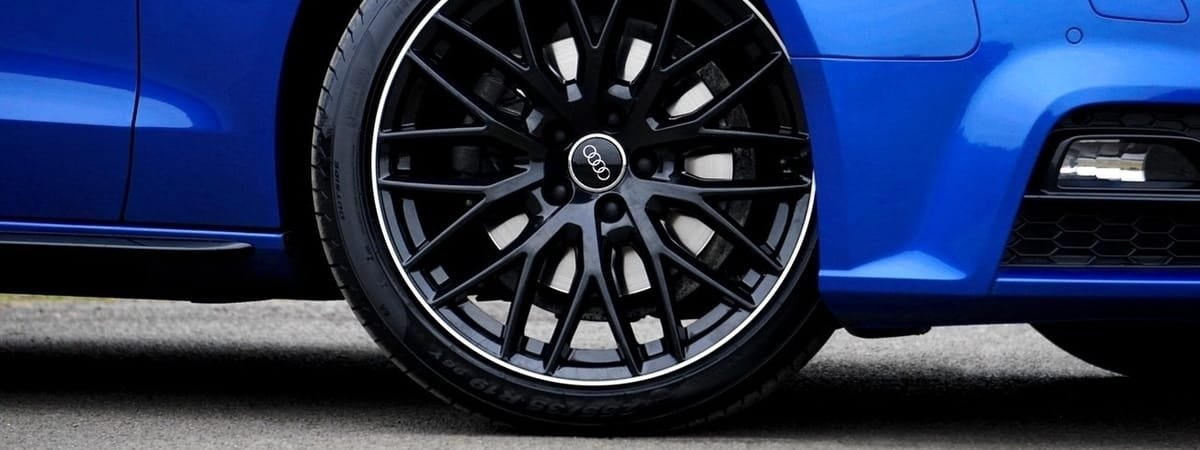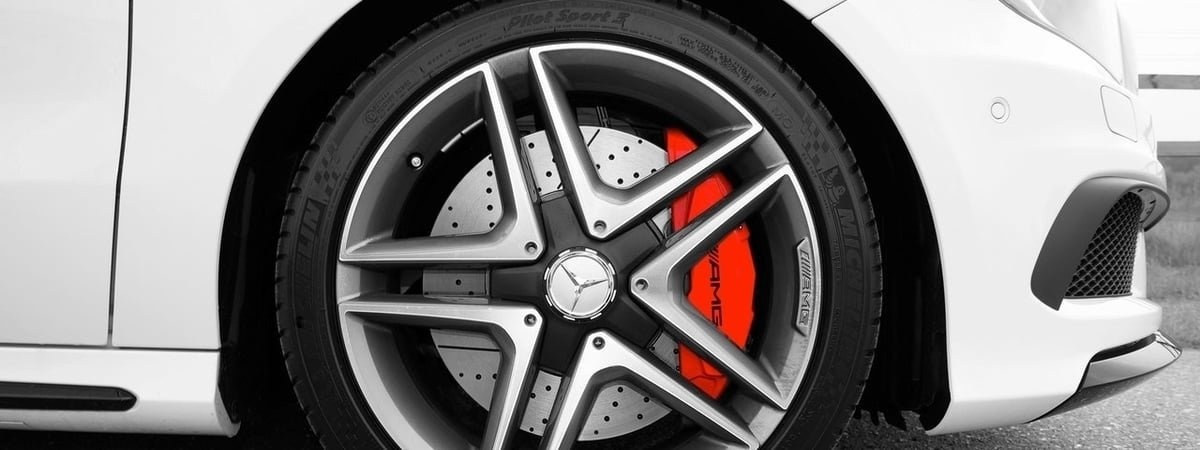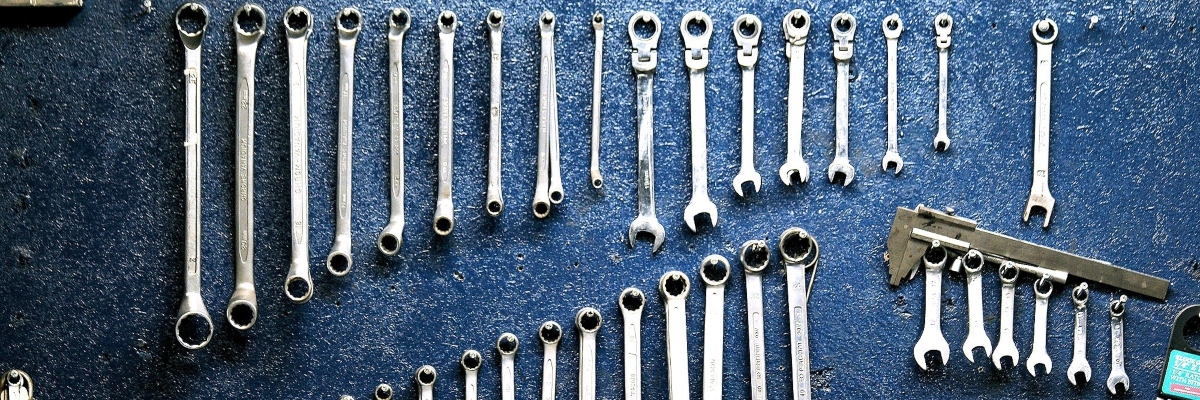Brakes are a vital aspect of your car and without them, you could get into significant difficulties. So, if you have squeaking brakes, not only is it likely to be a massive irritation, it can also be very worrying. While it is normal for your brakes to make a small amount of noise especially when they aren’t warm, excessive and continuous squeaking of your brake pads could be a greater cause for concern.
What does it mean when brakes are squeaking?
Squeaking brakes can indicate several potential issues with your vehicle and should not be ignored.
Often, it is caused by a build-up of dirt, dust, or moisture on the brake pads, particularly after driving in wet or muddy conditions. However, it could also signal that the brake pads are worn and need replacing, as many are designed to make a squeaking sound as an early warning.
In some cases, squeaking might result from the type of brake pad material or improper installation. If the noise persists or is accompanied by reduced braking performance, it is essential to have your brakes inspected by a qualified mechanic to ensure your safety on the road.

Common causes of squeaky brakes
There are a variety of common causes for your squeaky brakes these include:
Worn Brake Pads:
Worn brake pads are one of the most common causes of squeaky brakes and should be addressed promptly to ensure safe driving. Brake pads are designed with a wear indicator that produces a high-pitched squealing sound when they become too thin, serving as a warning that they need replacing.
Ignoring this sound can lead to further damage, such as wear on the brake discs, which can be more costly to repair. Driving with worn brake pads also reduces braking efficiency, increasing the risk of accidents. Regular maintenance and timely replacement of brake pads are essential to prevent squeaky brakes and maintain optimal braking performance.
Moisture:
When moisture collects on the brake rotors from overnight rain, dew or condensation it causes a thin layer of rust to form on the rotor surface. As the rotor turns the pads scrape the rust off the rotors. This rust can then get caught on the leading edge of the brake pads eventually embedding into the leading edge causing a squeak.
Squeaky brakes caused by moisture often occur in the morning and usually stop after a few minutes when the brake pads have had a chance to warm up a little or the thin layer of rust has worn off.
Thinning Pads:
As mentioned most brake pads are fitted with a wear indicator which will start producing a squealing sound when your brake pads are getting thin enough to require changing.
High Metal Content:
Cheaper brake pads tend to have a higher metal content. The result of this is larger pieces of metal on the brake pad surface. These metal pieces drag on the brake rotor and can cause high pitched squeaky brakes.
The only real fix to this would be to always buy the best quality brakes pads recommended for your car. It’s important to remember your brakes are what ensure you stop so it’s important not to try and scrimp and save on them.
Glazing:
Brake pads can become glazed resulting in them producing a squeaky noise. If brake callipers stick it can cause the brake to stay partially applied. This results in excessive friction and heat which can cause the brake pads to harden and crystallise or glaze.
Glazed brakes reduce the stopping action of your brakes as well as causing a high pitch sound when you apply the brake. Glazed brakes can often be fixed quickly by a technician who will sand the brake rotors and pads to remove the ‘glaze’ and investigate and fix the issue with the callipers.

New Brakes Squeaking:
It is not uncommon for new brakes to squeak initially as they bed in. This can be down to the materials used in the brake pads and if this is the case the squeaking usually wears off quickly.
New brake squeaking can also be caused by metal fibres in brake pads which if too close together can generate squealing sounds. This is not usually anything to worry about as typically the brakes will wear which will stop the squeaking.
Additionally, if the brake rotors are not machined or replaced with brake pads, the rotors don’t always mesh with the new pad which can cause some squeaking. You should get in touch with whoever replaced your pads and double-check with them.
Finally, new brakes squeaking can be a result of the calliper pins being stuck in the ‘apply’ position which can also cause glazing. In this case, you need to take your vehicle back to where you had the pads fitted in order for them to take a look.
Why do brakes squeak when stopping slowly?
When your brake pads are starting to wear, they can often make a squeaking or squealing noise when you press the brake pedal. This is because many manufacturers place a small piece of soft metal, known as a wear indicator, in the brake pad.
Once the brake pad wears to a certain level, this wear indicator begins to rub against the brake rotor and results in a squeaking noise. This acts as a warning and indicates your brake pads need changing.
Why do brakes squeak at low speeds?
If you find that your brakes only squeal at low speed, there are a number of causes. Some high-performance brakes will often squeal at lower speeds and with gentle braking when new, but will no longer make this noise once the brakes have been bedded in.
Another factor causing brake squeal at lower speeds is that as many new cars are fitted with harder brake pad materials, they have a higher tendency to squeak especially at lower speeds.
Squealing brakes at low speeds can also be caused by dirt or debris trapped within the braking mechanism causing an area to rub resulting in a high pitched squeal. At higher speeds, the rubbing occurs more quickly which can result in a different frequency that is no longer audible.

Squeaking noise while driving but brakes are not applied
A squeaking noise while driving, even when the brakes are not applied, can indicate a range of potential issues that require attention. One common cause is a foreign object, such as a small stone or debris, becoming lodged in the brake system, causing intermittent noise as the wheels rotate. Alternatively, it could be due to worn brake components, such as a loose or misaligned brake pad or calliper, which may make contact with the rotor even when the brakes are not engaged. In some cases, the noise might originate from non-brake-related components, such as a faulty wheel bearing or worn suspension parts. It is important to have the vehicle inspected by a qualified mechanic to identify and resolve the issue, ensuring both safety and peace of mind.
Grinding noise when braking
A grinding noise when braking is often a sign of serious wear on your brake system and should be addressed immediately. This noise typically occurs when the brake pads have worn down completely, causing the metal backing plate to grind against the brake disc or rotor. Left unresolved, this can lead to significant damage to the brake components, increasing repair costs and compromising vehicle safety. If you hear a grinding noise when braking, it is essential to stop driving and have your brakes inspected and repaired by a qualified mechanic as soon as possible.
How to stop the squeaking in brakes:
Stopping squeaking in brakes typically involves identifying and addressing the underlying cause. Start by inspecting the brake pads, as worn pads are a common culprit and may need replacing. If the pads are in good condition, ensure they are properly installed and check for any loose or misaligned components in the braking system. Cleaning the brake pads and rotors can also help, as dirt, dust, or debris can cause noise. In some cases, applying a high-temperature brake lubricant to the back of the pads can reduce squeaking. If the issue persists, it’s advisable to have your brakes inspected by a qualified mechanic to ensure there are no more serious problems affecting your vehicle’s safety.

How to check brake pads:
- Ensure Safety First: Park your vehicle on a flat surface, engage the handbrake, and ensure the engine is off. Use wheel chocks to prevent the car from moving.
- Loosen the Wheel Nuts: Slightly loosen the wheel nuts on the wheel you are inspecting but do not remove them entirely.
- Lift the Vehicle: Use a car jack to lift the vehicle and secure it with axle stands for safety.
- Remove the Wheel: Fully remove the wheel nuts and take off the wheel to access the brake components.
- Inspect the Brake Pads: Look through the calliper to locate the brake pads. Check their thickness – if they appear to be less than 3mm thick, they likely need replacing.
- Look for Uneven Wear or Damage: Check for signs of uneven wear, cracks, or damage on the pads, which could indicate other issues in the brake system.
- Reassemble the Wheel: Once you’ve completed the inspection, refit the wheel, tighten the nuts by hand, lower the car, and fully tighten the nuts with a wrench.
- Test the Brakes: After reassembly, gently test the brakes at low speed to ensure they are functioning correctly.
If you’re unsure about the condition of the brake pads or notice significant wear, seek advice or service from a qualified mechanic.
How much does it cost to replace brake pads?
There is no set price for replacing brake pads and discs as the cost of replacing brake pads and discs varies depending on the make and model of the car. For example, a performance car will generally cost more for replacement brake pads and discs than a hatchback.
In addition, the frequency of brake pads in which brake pads and discs should be replaced will vary between makes and models. So, you may find some models may cost you more during the course of ownership because it is recommended the brakes and discs are replaced more frequently.
Finally, since not all pads and discs are made equal, the quality of the brake pads and discs can alter the cost of replacement brake pads and discs. Higher quality pads are not only made of better quality materials but have usually undergone more extensive research, additional testing and more stringent control procedures. However, all of this means that high-quality brake discs and pads are often more expensive.
In certain situations, the additional cost of high-quality brake pads and discs really makes a difference. For example, high-end sports cars tend to need higher quality brakes which can withstand greater braking forces. However, for the average driver, there is likely to be a limit at which high-end brake discs and pads become unnecessary.
Therefore, for daily driving, we would say the best practice is to replace your brake pads and discs with manufacturer-approved parts. Not only will this help ensure you get the best performance from your brakes, but it will also help reduce the chances of your brakes squeaking.
Usually, manufacturer-approved brake discs and pads will be slightly more expensive than non-approved parts but given that your brakes are such an integral aspect of car safety it’s a good idea not to scrimp in this area.

Are brake pads checked on an MOT?
Yes, brake pads are checked during an MOT test, but the inspection is visual and non-invasive. The tester will examine the brake pads through the wheels, if visible, to assess their condition. They will check for excessive wear, damage, or contamination, as well as ensure the brake system as a whole is functioning correctly. However, the brake pads will not be removed or measured during the test. If the pads are excessively worn or visibly below the recommended thickness of 3 millimetres, this could result in an advisory or failure. It is important to regularly inspect and maintain your brake pads to ensure they are in good condition and meet MOT standards.